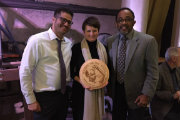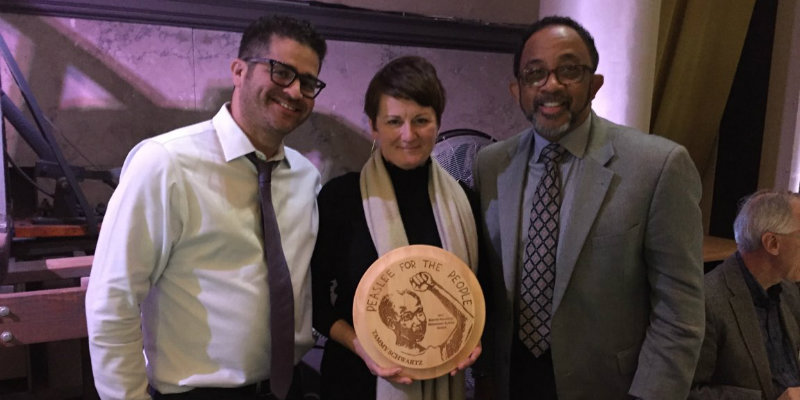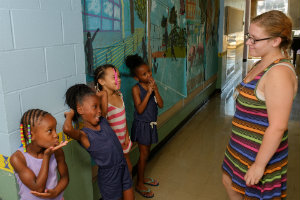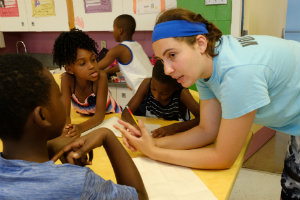Urban Cohort Director Honored with Bonnie Neumeier Movement Builder Award


James M. Loy, Miami University
The Urban Cohort has come a long way since it began almost a decade ago, and it’s building the momentum and the recognition to prove it.
What started as a program to prepare Miami University students to teach in high-needs urban schools, has grown to become a collaborative space where educators, aspiring teachers, and students from all majors can work together with local residents to transform lives and entire communities.
It’s also helping to start productive dialogues around race, class, power and privilege. It’s teaching the next generation of college students how to value diversity and to become more critically minded and civically engaged. 
And it’s all work that has recently earned Urban Cohort director Tammy Schwartz the Bonnie Neumeier Movement Builder Award for her ongoing commitment to the program’s long-standing vision and mission.
“Tammy is a revolutionary for public education,” Jennifer Arens said during an award ceremony at the Peaslee Neighborhood Center in Cincinnati. “As the director of the Urban Cohort at Miami University, she has developed a powerful national model for community-based teacher education -- one that supports and challenges future urban teachers to serve their students by confronting injustice, both personally and systemically.”
Arens, the Peaslee Neighborhood Center’s community education and volunteer coordinator, also commended Schwartz’s passion for social justice and her ability to make an impact on numerous levels.
“She has spent years building community relationships and connecting folks across generation, place, class, race, and position,” Arens continued. “She believes in our collective strength, but she doesn’t pretend that it comes easy. She challenges power. She listens. She doesn’t come in with the answers. She creates space for community voice.”
Schwartz, however, said that the honor does not belong to her alone.
She also credits everyone -- including local community leaders, neighborhood residents, and those across Miami’s College of Education, Health and Society (EHS) -- who continue to make the program possible.
“This work does not happen just from the university side, nor does it happen just from the community side,” Schwartz said. “This would not have happened without working together collaboratively. It wouldn’t happen without places like the Peaslee Neighborhood Center. It wouldn’t happen without the faculty, the students here, and the administrative staff. It takes a village to do this kind of work.”
The Urban Cohort is designed to immerse Miami students in the day-to-day community life that primarily stretches across Cincinnati's Over-the-Rhine (OTR) neighborhood. Here, students live in the area and work with Rothenberg Preparatory Academy elementary students to identity and solve the social problems that they and their families face. 
Those who participate have tackled issues pertaining to homelessness, poverty, violence, poor housing conditions, and more. It all leads to what Schwartz calls “deep heart work” and the work has not gone unnoticed.
In addition to the Bonnie Neumeier Movement Builder Award, Schwartz was also the recipient of the 2014 Nicholas Michelli Award for Promoting Social Justice. And earlier this year, Schwartz, along with EHS Dean Michael E. Dantley and others, also showcased the program at the U.S. Capitol to demonstrate how similar community-based partnerships can be replicated across the nation.
The recent success and recognition of the Urban Cohort proves what can be accomplished when people work together toward a common goal, especially among those who hope to live in a more just and equal society.
And for Schwartz it has been a tremendous honor.
“There are people who get overlooked so often in our society,” Schwartz said. “So to receive an award from a group of people who do often get overlooked, and knowing that they feel part of something bigger that benefits the neighborhood, and the children and the families in that neighborhood, couldn’t be any more important to me in the whole world.”

